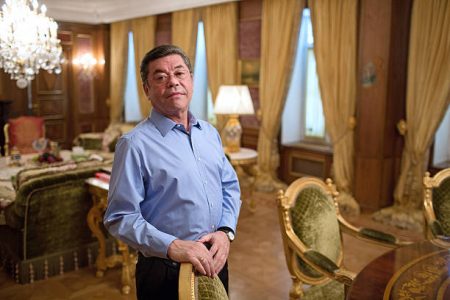Patokh Chodiev Cleared As Kazakhgate Investigation Finally Ends - Dispatch Weekly
September 30, 2020 - Reading time: 4 minutes

The final judgement in a long-running diplomatic scandal known as “Kazakhgate” arrived last week when the Belgian Court of Cessation formally dismissed a bribery case involving a member of the country’s royal family.
The judgement brings an end to years of allegations that the Kazakh businessman Patokh Chodiev had influenced the introduction of Belgium’s plea bargain law in 2011.
This allegation led to multiple investigations, criminal proceedings and even a Belgian Parliamentary Inquiry. All of these investigations have now ended, and they have all concluded that the billionaire did nothing wrong.
According to media reports, Chodiev and his business partners were put under investigation by the Belgian authorities after buying some property in the mid 1990s. The case dragged on and, in 2011, prosecutors offered Chodiev a settlement using a new plea bargain law, or transaction pénale, that had been introduced around the same time.
Chodiev and his partners agreed to pay €21 million to settle the case with no admission of guilt. But it was subsequently claimed that the transaction pénale law had been introduced to benefit Chodiev following lobbying from the French government.
It was claimed that Chodiev was helping the French to secure a €4 billion defence deal with Kazakhstan and, as a favour, the French agreed to pressure Belgium into settling the property case.
This allegation of foreign interference in Belgium’s political process caused a media storm. But subsequent investigations found no evidence of influence peddling and no scandal.
A Parliamentary Inquiry Committee (PIC), which studied the case for 15 months, concluded that the transaction pénale law had been under discussion for five years before it was enacted and its introduction was not the result of political influence.
The PIC also said that the plea bargain law had been properly used in the Chodiev case. “With the Chodiev et al case dragging on for years, and as the court sitting in chambers had concluded that the reasonable time had passed, it was ultimately on the issue of the reasonable time period that the public prosecutor based his decision to conclude and adopt the extended plea bargain,” the PIC report said.
Claude Guéant, chief of staff to former President Nicolas Sarkozy, categorically denied any attempt by France to influence the Belgian law. He said that officials had only introduced Chodiev to a lawyer called Catherine Degoul, who the French thought might be able to help.
Degoul then hired a Belgian senator called Armand de Decker to help, although without Chodiev’s knowledge. After the Chodiev settlement, De Decker arranged for €25,000 to be paid to Amitié et Fraternité Scoute (AFS), a Scouting charity chaired by Jean-François Godbille – who was the advocate general for Brussels at the time.
The money was paid to AFS via another charity, the Prince & Princess Alexandre of Belgium Fund. Princess Lea, who ran the charity, thought the donation was coming from the Order of Malta and did not know it was actually from Catherine Degoul. The media claimed that the payment to Godbille, via Princess Lea’s charity, showed that Chodiev and his lawyer had bribed the advocate general in order to get the plea bargain agreement.
The prosecutor’s office in Hainaut brought a case against Princess Lea and Godbille but dropped it in January 2020 for lack of evidence. A judge formally dismissed the charges against Princess Lea and Godbille last week.
This was the last element of the Kazakhgate affair in Belgium and the dismissal brings to an end this long-running and ultimately fruitless matter.

DW Staff
David Lintott is the Editor-in-Chief, leading our team of talented freelance journalists. He specializes in covering culture, sport, and society. Originally from the decaying seaside town of Eastbourne, he attributes his insightful world-weariness to his roots in this unique setting.
